
[ad_1]
Cats are naturally playful, and many cat owners seek ways to engage their furry friends with stimulating activities. Laser pointer cat toys have gained popularity as an entertaining and interactive tool, but a common question is whether they are safe for our feline companions. In this article, we’ll delve into the safety considerations surrounding laser cat toys.
The Myth About Laser Pointers and Cats
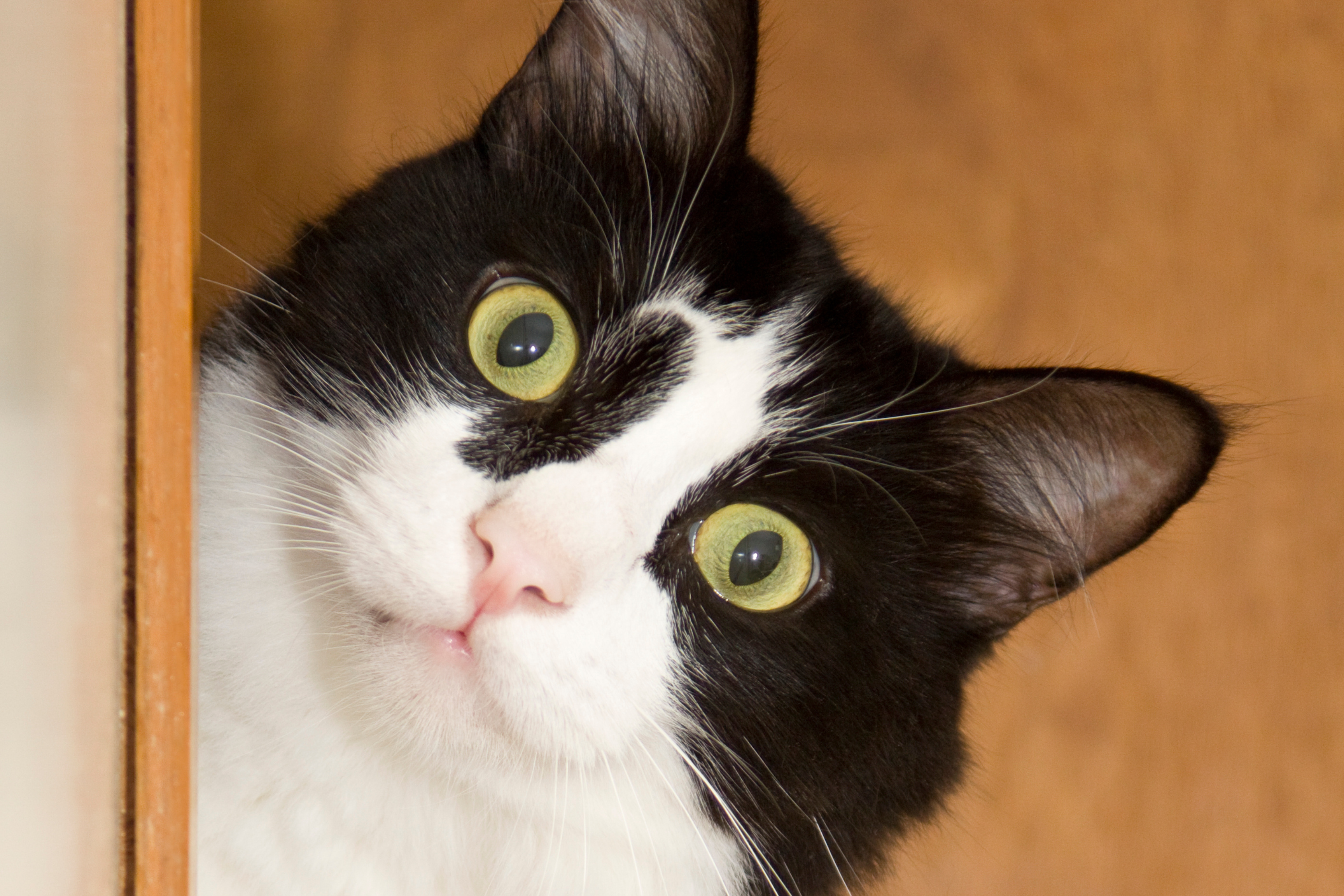
The myth surrounding laser toys and their potential harm to cats has generated widespread concern among pet owners. One “problem” is that the intense light from laser light can damage a cat’s eyes. Another belief is that laser pointer play can lead to obsessive behaviors, as cats may become fixated on chasing the elusive light.
It is crucial to debunk these myths and address the associated concerns. Contrary to popular belief, laser toys do not harm cats when used correctly. While frustration and overstimulation are potential concerns, providing alternative toys and play options can help alleviate these risks. Educating cat owners about responsible laser pointer use is crucial to ensure their feline companions’ safety and well-being. Let us delve more into these concerns.
Why Laser Pointers Are a Big Hit with Cats
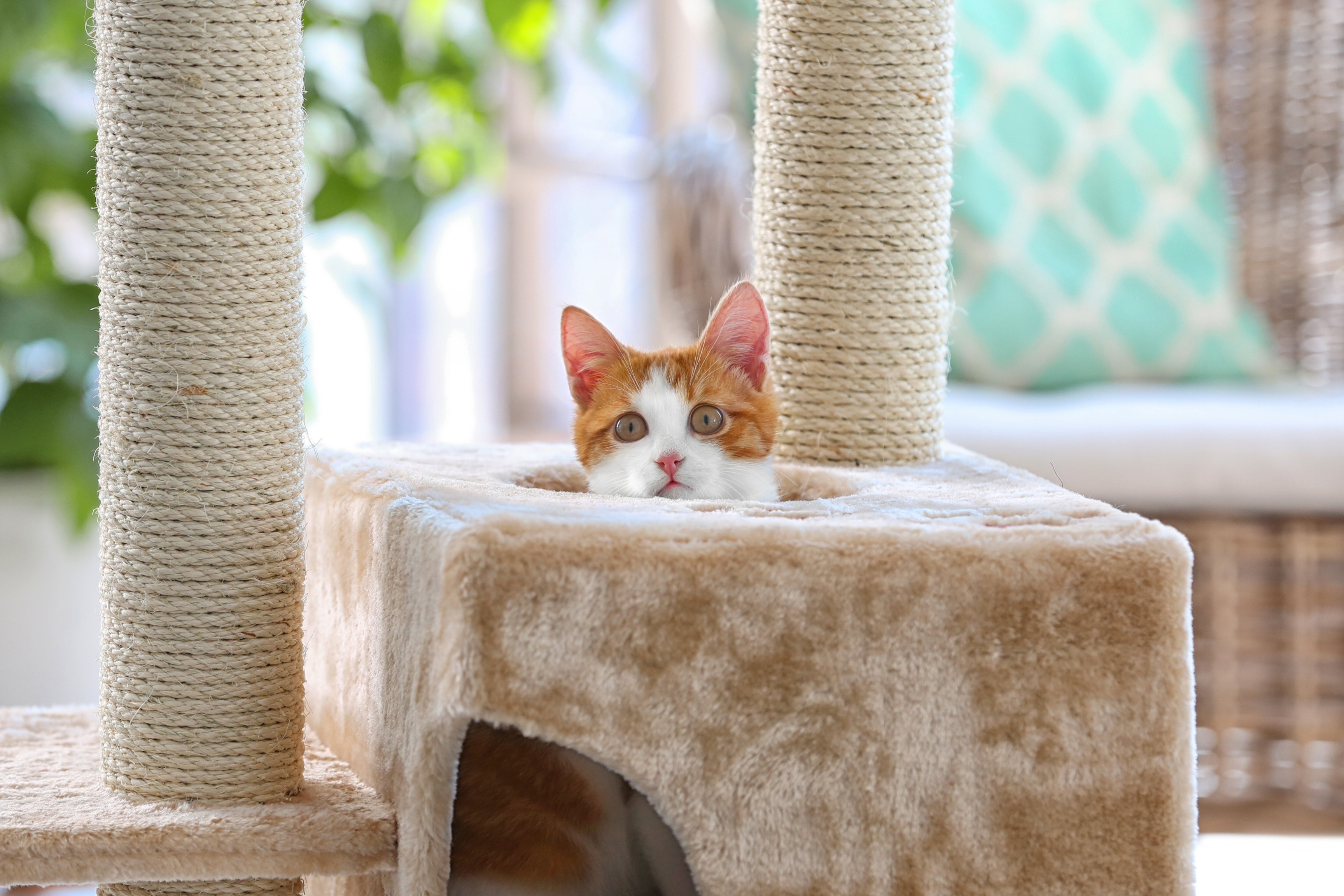
Due to their natural hunting instincts, cats perceive laser lights as fast-moving prey. The quick movements and bright light simulate the behavior of small animals, triggering cats’ chase reflexes. Cats are attracted to the movement and try to capture the light, even though they cannot physically catch it. Laser toys tap into a cat’s natural hunting instincts, providing mental and physical stimulation during playtime.
Cats’ vision vastly differs from humans’, influencing how they perceive laser lights. Cats have highly sensitive retinas designed to detect even the slightest movement. Laser pointers mimic prey behavior by creating fast and unpredictable movements, captivating a cat’s attention and triggering their natural hunting instincts.
Expert Opinions and Studies
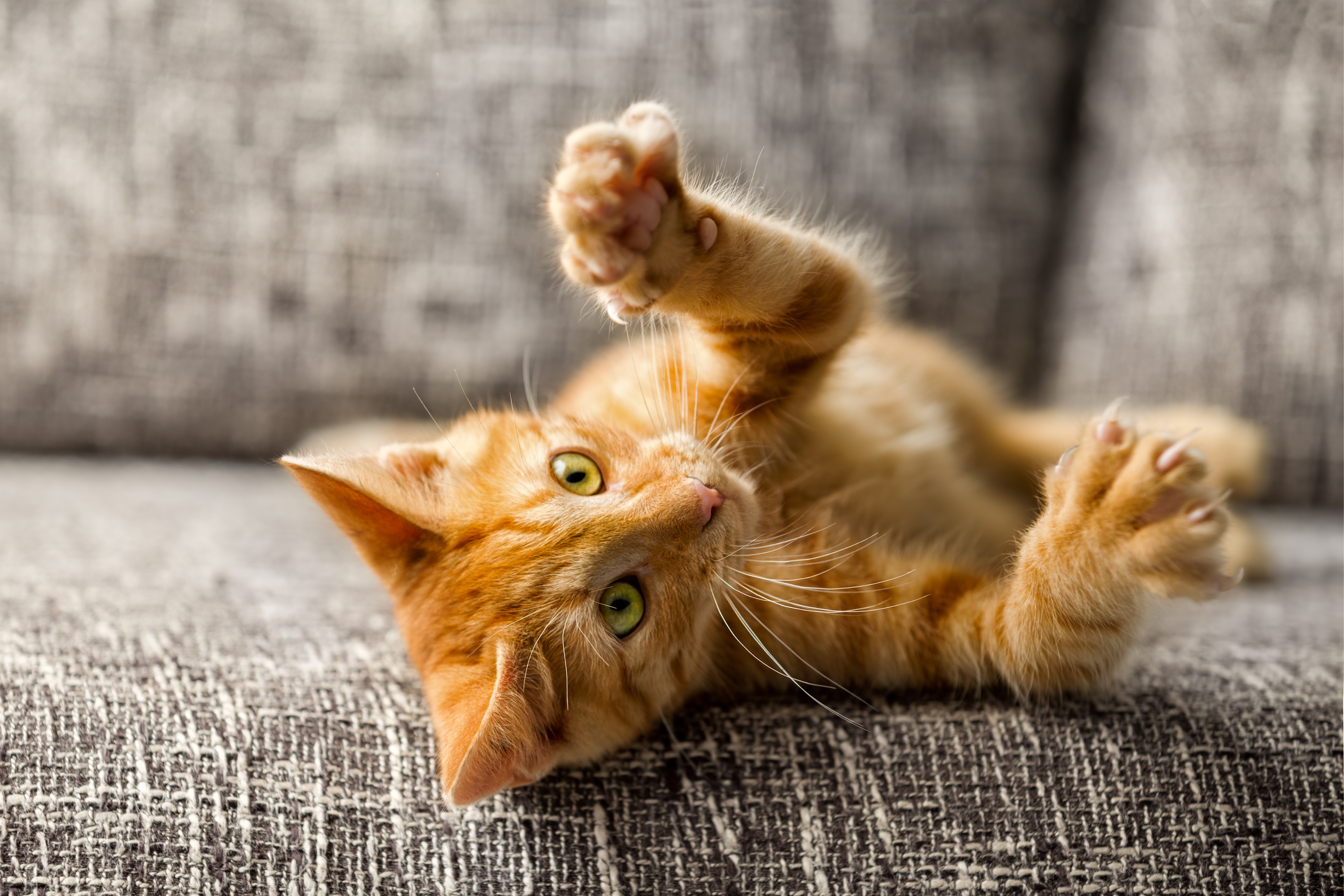
Expert opinions and studies provide valuable insights into using laser pointer light for cat play. Many veterinarians and animal behavior experts agree that laser pointer play can be safe and enjoyable for cats. Research studies have found that laser pointer play can help reduce stress as well as provide mental stimulation for cats. Experts recommend using laser dot with other interactive toys to give cats a physical target to pounce on. To ensure their safety and satisfaction, it is also essential to constantly monitor and engage with your cat during playtime.
Responsible Playtime with Laser Pointers
Laser pointers, when used responsibly, can provide hours of entertainment for cats. However, as with other toys, it’s crucial to be mindful of some considerations to ensure the well-being of your cat:
- Avoid Direct Eye Exposure: The primary concern with laser pointers is the potential harm caused by direct exposure of the laser beam to a cat’s eyes. Cats, like humans, can experience damage to their retinas if exposed to a high-powered laser for an extended period. Avoid powerful lasers and always use low-powered lasers specifically designed for pet play to mitigate this risk. During playtime, see that the laser beam is not pointed directly into your cat’s eyes but instead creates movement on surfaces or objects.
- Moderation is Key: While cats may find laser play highly engaging, using these toys in moderation is crucial. Extended and frequent use of cat laser toys without a tangible, physical reward at the end can lead to frustration for your cat. Cats instinctively want to catch and ‘capture’ their prey. To complete the hunting sequence in your cat’s play session, incorporate tangible interactive toys that they can physically engage with, allowing them to satisfy their natural hunting instincts.
- Combine Laser with Physical Play: Another way to address the potential frustration that can arise from the intangibility of laser light beams is to combine them with other cat toys. Introduce toys your cat can pounce on, bat around, or physically capture. This provides a more satisfying play session and ensures your cat’s well-rounded and physically engaging experience.
- Observe Your Cat’s Behavior: Every cat is unique, and their reactions to laser play may vary. Observe your cat’s behavior during and after laser play sessions. If you notice signs of stress, frustration, or anxiety, such as excessive grooming, hiding, or changes in appetite, discontinue using laser pointer toys. Paying close attention to your cat’s cues will help you gauge whether they find the activity enjoyable or causing any distress.
By implementing these safety measures, you can ensure that laser pointer cat toys are a safe source of mental as well as physical stimulation for your cat without compromising their well-being.
Alternatives to Laser Pointers for Cat Play
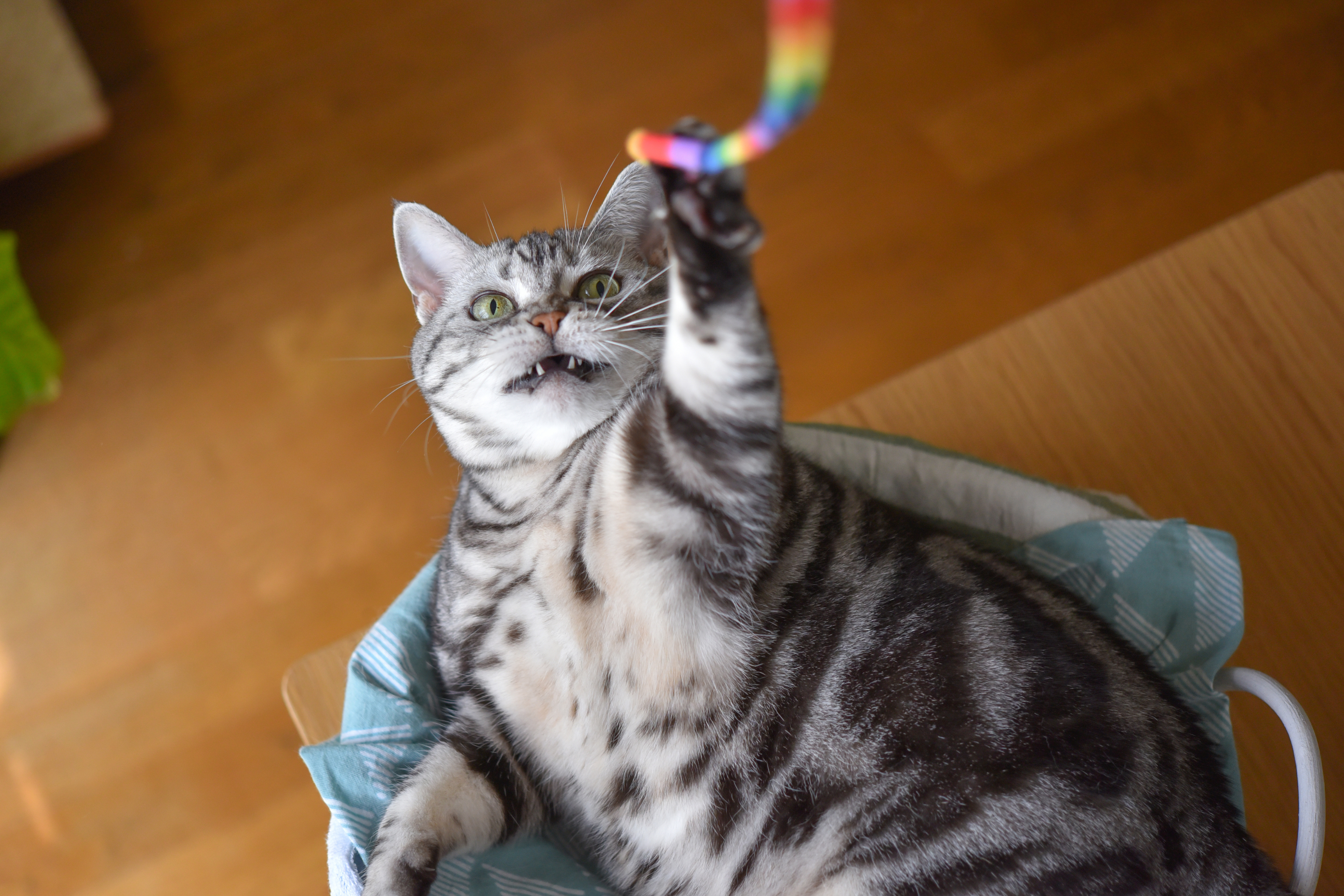
Plenty of toys besides laser pointers are available if your cat needs alternatives. Interactive toys such as puzzle feeders, treat-dispensing toys, and wand toys with feathers or strings can provide mental stimulation and engage your cat’s natural hunting instincts. Automated toys that move independently, like robotic mice or balls, can also be a great source of entertainment for your feline friend. These alternatives offer a variety of play styles, allowing you to find the perfect option for your cat’s individual preferences and needs.
Conclusion
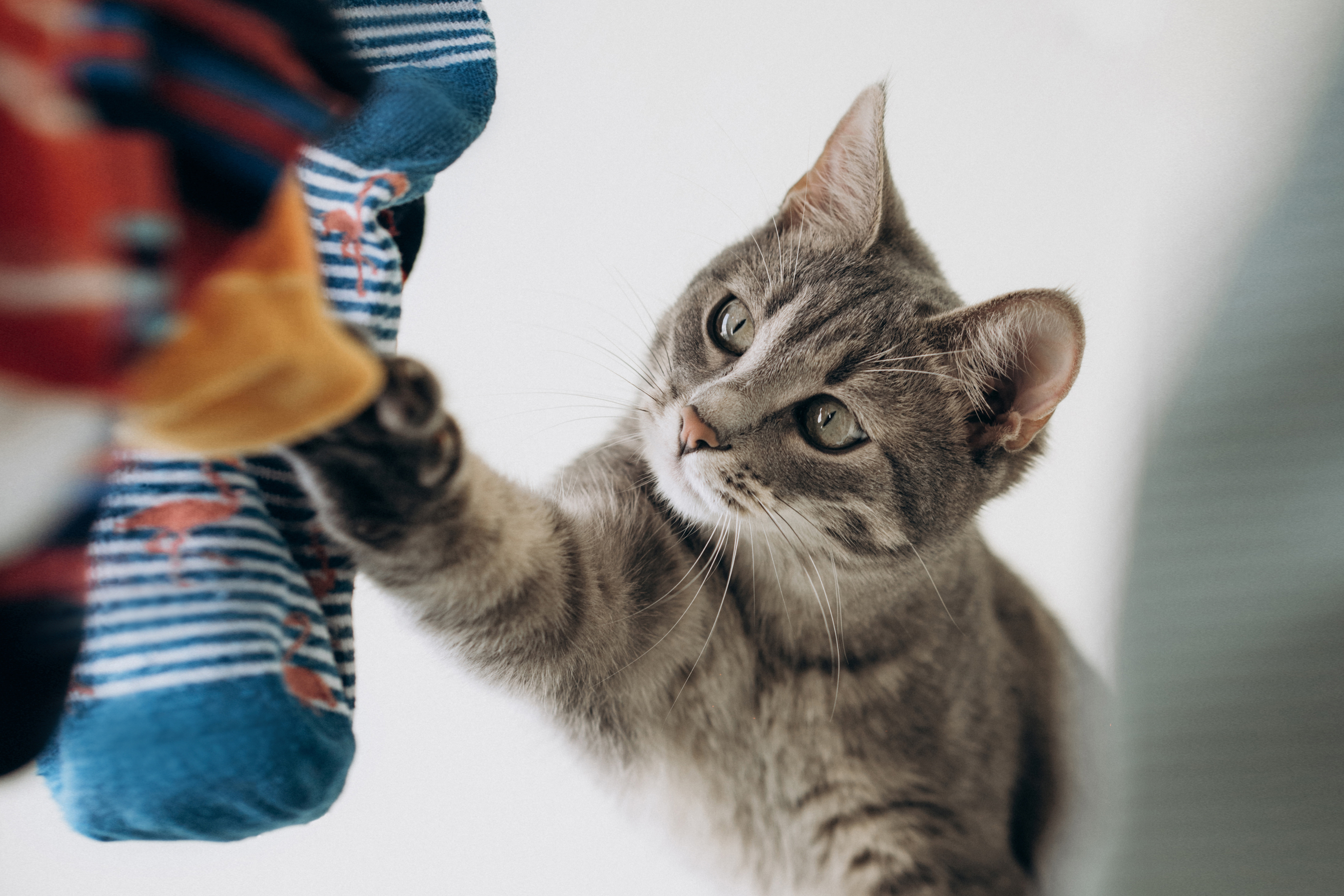
In conclusion, while laser light play can provide mental stimulation and entertainment for cats, using them with other interactive toys and physical targets is essential. Laser play should be just one of many play sources for cats, as it may not fully meet their needs for physical exercise and environmental enrichment. By incorporating a variety of play options, cat owners can ensure their furry babies have a well-rounded and satisfying play experience.
[ad_2]







